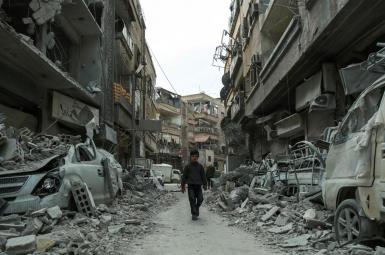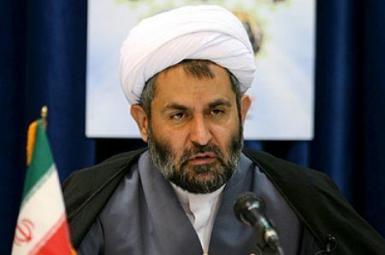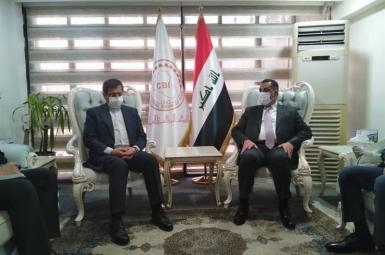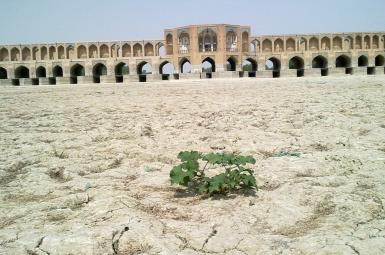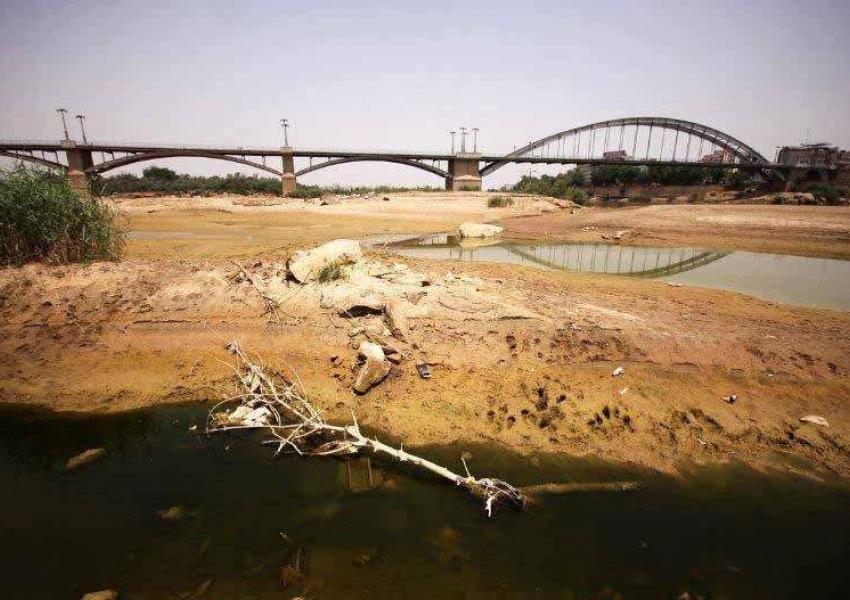
Iraq Accuses Iran Of Violation By Cutting Off Water From Vital Rivers
Iraqi officials have accused Iran in recent days of reducing water flow from rivers shared by the two countries, violating international law and endangering Iraq’s agricultural sector and in some cases the populations drinking water supply.
Minister of Water Resources, Mahdi Rashid Hamedani on Sunday that water flow from Iran to Iraq has completely stopped and Baghdad considers to lodge a complaint with United Nations entities for breach of international laws and inflicting damage by cutting off rivers flowing across the border.
Iran was accused last year of cutting off two main tributaries flowing into Tigris River also in the peak of summer, denying much needed water for two dams in Iraq.
However, this year water shortage in Iran is much worse than last year, with almost 50 percent less precipitation in the winter and spring. Almost 8,000 villages are supplied by tankers and many nature reserves and lakes have gone dry.
This year, Iraq’s Diyala province has taken the brunt of Iran’s action. Hamedani says that for now the province has a reserve of drinking water and the government is looking for ways to limit damage to agriculture.
The minister announced that Iran has completely cut off water from four rivers and if this situation continues the Diyala province might face a serious situation.
Even without Iran’s reduction of water flows, Iraq has been suffering from serious water shortages for years. The main rivers feeding the country originate in Turkey and Iran, with climate change reducing water supplies in the whole region. Iraq's water crisis can add to political conflict in the country, trying to establish a measure of stability.
But amid the current crisis, Baghdad has appealed to Ankara for more water to be released into rivers flowing south. Turkish sources said Sunday that Ankara has already increased the flow.
Iraq complains that both Turkey and Iran have an insatiable appetite for building dams, which give them the ability to withhold water and even direct it to other projects, such as Iran’s futile attempts to revive Lake Urmia in north-west.
People in Iran also have the same concern that the government and especially construction companies affiliated with the powerful Revolutionary Guard have been building dozens of dams, often without careful study of their impact on water supplies and the environment.
Water protests have increased since last month in Iran, especially in the oil-rich Khuzestan province bordering Iraq. Tens of thousands of farmers are forced to buy even their drinking water from tankers visiting villages.
Iraqi officials say, so far, Iran has not responded to their requests to discuss the issue of water flows, despite previous promises of holding negotiation over the issue.
Iran is facing not only a water crisis this year but also serious electricity shortages that might impact its ability to provide Iraq with energy based on a bilateral agreement. Iranian officials in recent days have told an angry public that all electricity exports have been halted.
